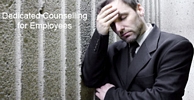We often talk about disabled people as though they form one group, but each individual faces different challenges and health conditions.
Video: living with disability
The Disability Discrimination Act defines a disabled person as anyone who has a physical or mental impairment that has a substantial and long-term adverse affect on his or her ability to carry out day-to-day activities. These impairments include:
* loss of limbs
* multiple sclerosis
* heart disease
* Down's syndrome
* learning difficulties
* mental health problems, such as depression and anxiety.
The prevalence of disability increases with age, and most disabled people are adults. Of the UK's 10 million disabled people, 700,000 are children.
An increasing proportion of the population lives with a disability. This is because we're living longer, and improved medical treatments are enabling more people to manage long-term health problems. The Equality and Human Rights Commission says that 58% of people above 50 will have a long-term health condition by 2020.
We often talk about disability as if it's always a life-long condition. In fact, more than 80% of disabled people were born without their disability.
The majority of disabled people became disabled in adulthood.
If you become disabled through accident, illness or a deteriorating medical condition, life will change significantly. But with the right support, you can often continue to live in your own home, remain in employment and enjoy an independent life.
Coping emotionally
At first, you may feel confused, depressed or anxious about your life in the future.
"Disability can arise in a number of ways, but the huge psychological impact should never be neglected," says Wendy Gross from disability rights group the National Centre for Independent Living.
"Often, newly disabled people shy away from organisations that might help them. But contact with people who face similar challenges is really important."
Charities such as the National Centre for Independent Living or ?tabid=" RADAR , a national network of disabled groups, can help you contact organisations that are relevant to your disability.
Sometimes, a new disability can affect mental health. If this becomes a concern, your GP can help.
Practical support
Often, practical help with day-to-day tasks is what makes it possible for you to keep living independently in your own home.
Your disability may entitle you to state-funded practical support from health and social care services. This might include special equipment, adaptations to your home, and home care visits to help with things such as shopping, cleaning and dealing with personal hygiene.
The first step is to ask social services at your local council to arrange a health and social care assessment. You'll be visited by an occupational therapist and receive a written care plan stating what you're entitled to.



